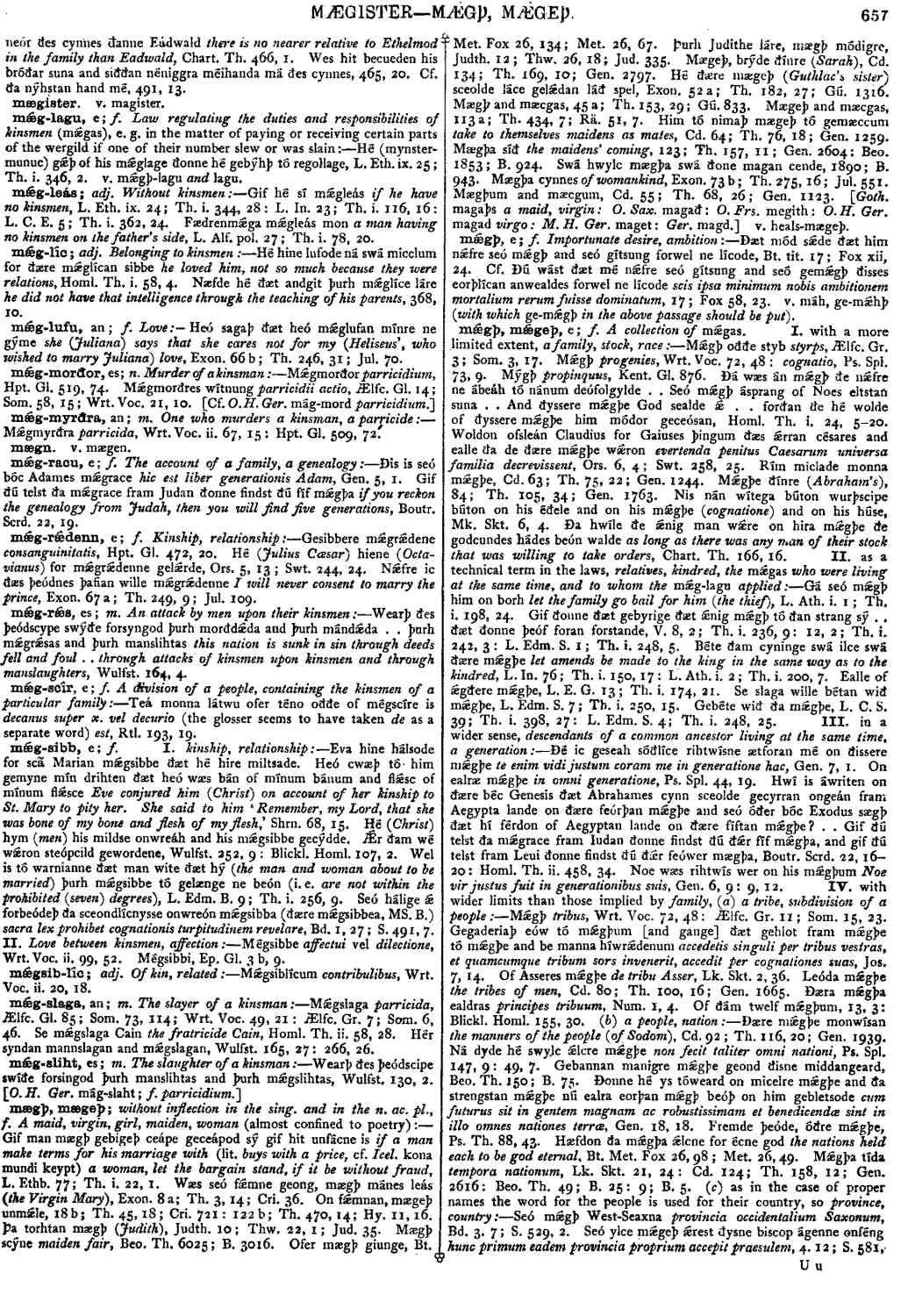mǽg-sibb
- noun [ feminine ]
-
Eva hine hálsode for sc̃a Marian mǽgsibbe ðæt hé hire miltsade. Heó cwæþ tó him gemyne mín drihten ðæt heó wæs bán of mínum bánum and flǽsc of mínum flǽsce
Eve conjured him (Christ) on account of her kinship to St. Mary to pity her. She said to him 'Remember, my Lord, that she was bone of my bone and flesh of my flesh,'
- Shrn. 68, 15.
-
Hé ( Christ) hym (men ) his mildse onwreáh and his mǽgsibbe gecýdde. Ǽr ðam wé wǽron steópcild gewordene,
- Wulfst. 252, 9: Blickl. Homl. 107, 2.
-
Wel is tó warnianne ðæt man wite ðæt hý
(the man and woman about to be married
)þurh mǽgsibbe tó gelænge ne beón
(i. e. are not within the prohibited (seven) degrees ),
- L. Edm. B. 9 ;
- Th. i. 256, 9.
-
Seó hálige ǽ forbeódeþ ða sceondlícnysse onwreón mǽgsibba (ðære mǽgsibbea, MS. B.)
sacra lex prohibet cognationis turpitudinem revelare,
- Bd. 1, 27 ;
- S. 491, 7.
-
Mégsibbe
affectui vel dilectione,
- Wrt. Voc. ii. 99, 52.
-
Mégsibbi,
- Ep. Gl. 3 b, 9.
Bosworth, Joseph. “mǽg-sibb.” In An Anglo-Saxon Dictionary Online, edited by Thomas Northcote Toller, Christ Sean, and Ondřej Tichy. Prague: Faculty of Arts, Charles University, 2014. https://bosworthtoller.com/22112.
Checked: 1